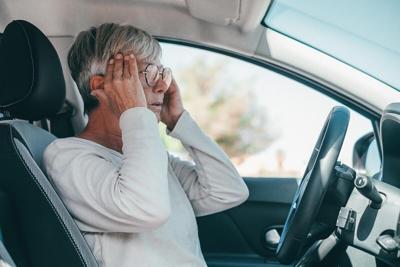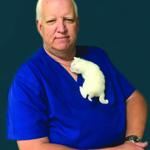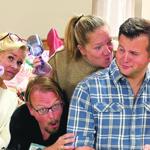Key Takeaways
A concussion might increase a person’s risk of a traffic crash
People with a concussion were 49% more likely to be in a crash
The risk was six times higher in the first month after a concussion
FRIDAY, Nov. 7, 2025 (HealthDay News) — Folks who’ve had a recent concussion might not want to get behind the wheel anytime soon.
Concussion victims are more likely to wind up in a traffic crash and that increased risk is highest during the first four weeks after their brain injury, researchers reported Nov. 6 in BMJ Open.
A concussion causes brain problems that can affect driving skills, including insomnia, dizziness, depression, brain fog and slowed reaction times, researchers said.
“I worry that sometimes a concussion requires more recovery time than most people realize,” lead researcher Dr. Donald Redelmeier, a scientist at the Institute for Clinical Evaluative Sciences and Sunnybrook Research Institute in Toronto, Canada, said in a news release.
“Rushing things might lead to another injury including a life-threatening traffic crash,” he said.
For the study, researchers analyzed medical records for more than 3 million patients in Ontario who suffered either a concussion or an ankle sprain between April 2002 and March 2022.
They identified more than 425,000 people who were treated for concussion and 2.6 million with an ankle sprain.
People with a concussion had an overall 49% higher risk of being in a traffic crash than those who’d sprained their ankle, the study found.
But their risk was six times higher in the first month following a concussion, researchers noted.
About 1 in every 13 concussion patients wound up injured in a subsequent traffic crash, researchers found.
While the study couldn’t establish a cause-and-effect relationship, it does show a strong link between concussion and crash risk, researchers said.
They suggested that patients seek treatment for the symptoms of concussion that increase traffic risk, including insomnia, headaches and depression.
They also should avoid high-speed driving during late-night hours in bad weather during the first month after their concussion.
“These results highlight the importance of traffic safety following a concussion as well as preventing concussions in the first place,” researcher Robert Tibshirani, a professor of statistics at Stanford University, said in a news release.
More information
The Children’s Hospital of Philadelphia has more on concussion and driving.
SOURCE: Institute for Clinical Evaluative Sciences, news release, Nov. 6, 2025
What This Means For You
People who’ve had a concussion should limit their driving for the first month, especially at night or in bad weather.





















(0) comments
Welcome to the discussion.
Log In
Keep it Clean. Please avoid obscene, vulgar, lewd, racist or sexually-oriented language.
PLEASE TURN OFF YOUR CAPS LOCK.
Don't Threaten. Threats of harming another person will not be tolerated.
Be Truthful. Don't knowingly lie about anyone or anything.
Be Nice. No racism, sexism or any sort of -ism that is degrading to another person.
Be Proactive. Use the 'Report' link on each comment to let us know of abusive posts.
Share with Us. We'd love to hear eyewitness accounts, the history behind an article.